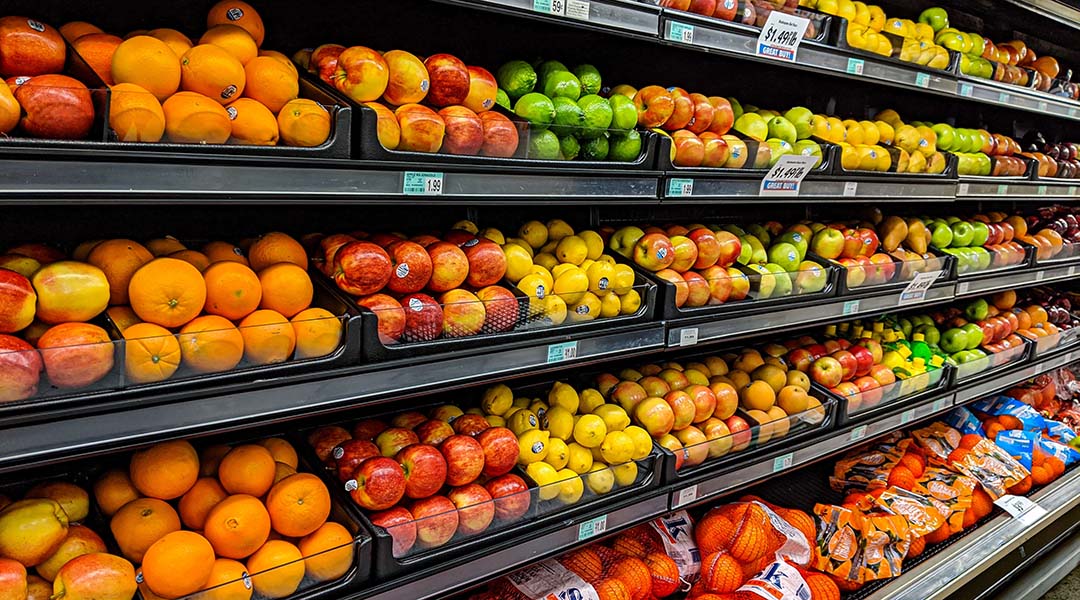It’s no big news that favoring plant-based food over meat has a positive impact on the environment. Nor is it a recent discovery that following a meat-heavy diet, such as the paleo diet, long-term has potential negative effects on an individual’s health.
But a recent study in The American Journal of Clinical Nutrition calculated the health and environmental impact of six popular diets followed by US consumers and concluded that small changes in individual’s habits might already be enough to bring about significant consequences.
“There are opportunities for small changes to be made that can have impacts over time on a population level,” said first author Keelia O’Malley, clinical assistant professor at Tulane University in Louisiana.
The study analyzed data from over 16 000 individuals in the US, who specified everything they had eaten in the past 24 hours in national health and nutrition surveys spanning five years (2005-2010). Then, the research team converted each meal into commodity ingredients. The production and distribution of those ingredients was used to calculate the environmental impact of each individual’s intake.
What people actually eat
In parallel, the individuals were categorized into six types of diets based on their intake: vegan, vegetarian, pescatarian, omnivore, keto and paleo. “A lot of the research that has been done in the US to date was looking at prescribed diets [while] we were able to look at how people actually eat,” said O’Malley.
This is how they concluded that the vegan and vegetarian diets are the least impactful on the environment, followed by pescatarian. Omnivore, paleo (which minimizes grains and beans in favor of meats, nuts, and vegetables) and keto (which prioritizes high amounts of fat and low amounts of carbohydrates) had increasing carbon footprints, with keto’s impact being four times that of vegan.
The authors also compared the health impact of the different diets based on two well-established indices: the Healthy Eating Index and the Alternate Healthy Eating Index. Pescatarian, vegetarian and vegan ranked highest, while keto and paleo tailed the classification.
In addition to the ingredients, health and environmental impacts are also affected by the degree to which food is processed, due to both the processing itself and the transport and packaging involved. While the database used in this study did not capture whether or not food was processed, O’Malley would welcome more data being collected in this regard. “There’s an opportunity for more information to be available for consumers so that they are making a more informed choice about the impacts that their food is having,” she said.
We can all have a bad day
The team is now working on analyzing data from the last two days’ worth of intake, instead of just one day. The existing dataset includes two-day intakes for only a fraction of the individuals, and the researchers chose to prioritize a larger sample size even if it meant settling for a narrower span of data.
As O’Malley explained, one-day data might have biases owing to the fact that people do not necessarily follow the same diet pattern every single day, while two days is more representative of an individual’s “usual intake”.
Francesca Crowe, lecturer in epidemiology and health informatics at the Institute of Applied Health Research in Birmingham, UK, who was not involved in the study, agreed: “We all do it, you just have a really bad day, don’t you, with your diet!”
The researchers’ plans include comparing the results from one- and two-day intakes in order to understand whether any significant differences in the patterns arise.
Eat more fruit and vegetables
In any case, the data from the study, as well as a whole body of prior evidence, suggests that eating more fruit and vegetables is a simple but effective way to steer towards a more sustainable and healthier diet.
Crowe pointed out that frozen varieties are also an option if long shelf lives are a priority. “Some canned vegetables as well are ok, you just have to obviously watch out for added fats and added salt. And then for canned fruit, added sugars. But […] because of the way they’re processed, actually, they end up retaining a lot of the nutrients, so they’re definitely a good alternative,” she said.
“Some countries include environmental sustainability into their dietary guidelines,” said O’Malley. “That has not been done to date in the US, and it’s certainly an opportunity to make those connections, again, between these two areas [i.e., health and sustainability] that have historically been looked at as separate.
“By consumers making those choices and those shifts,” she added, “they ultimately influence […] what gets produced, which could ultimately, then, have the biggest impact on the system.”
Reference: Keelia O’Malley et al., Popular diets as selected by adults in the United States show wide variation in carbon footprints and diet quality, The American Journal of Clinical Nutrition (2023). DOI: 10.1016/j.ajcnut.2023.01.009.

















